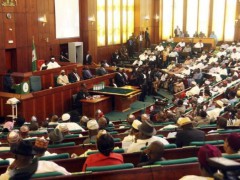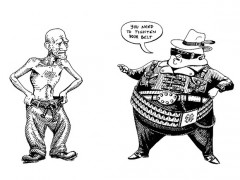-

Austerity without protests: how to do it?
Written by Ilina Mangova
In February and March 2011 thousands of citizens organized through social networks came out to protest in Zagreb against the worsening social and economic situation in Croatia. In January 2012 protests against austerity measures in Bucharest turned violent. In February 2013 the government of Bulgaria fell because of protests in […]
-

Austerity for growth? Greater European integration could be the emergency exit…..
Written by Angelo Boccato
Austerity has never been mentioned in the Italian debate until now, unlike asperity, a lighter word that also implies future perspectives of growth. The promise of a path of asperity leading to economic growth has been the ‘mantra’ of Mario Monti’s government, and Enrico Letta, the current prime minister has […]
-

Austerity in Europe is a joke for the rest of the world
Written by Paula Fortes
With all due respect to Mr. Hollande, not only is the crisis not yet over, but, as Mr. Piñera said, the best is yet to come. Latin American, which has long been considered a financial disaster zone, has turned round and given this traditional perception the lie. The unprecedented stability and prosperity […]
-

Fat Cat Politicians: The madness of the wages of Nigerian Lawmakers
Written by Chioma Agwuegbo
When I started my first job after graduation in 2008 at a federal owned radio and television station in Abuja, Nigeria, I was paid 40, 000 Naira a month; that’s roughly about US$250. I lived with family at the time, drove a car I really didn’t have to fuel, […]
-

If Politicians Practiced the Austerity they Preach We’d be Better Off
Written by Juliana Rincon
When governments speak of austerity measures, it seems that they do so without really understanding how these policies affect the general population, and what these cuts mean for people’s lives. If I could have one wish granted, it would be for politicians born with silver spoons in their mouths to […]
-

East African Youths Want Priorities Instead of Austerity.
Written by Ruth Aine Tindyebwa
Austerity measures are making more of an impact now in Europe where there are a great many people who didn’t know the meaning of the word “austerity” or didn’t even know such a thing existed before the onset of the euro-zone crisis. So does Africa need austerity measures or […]
